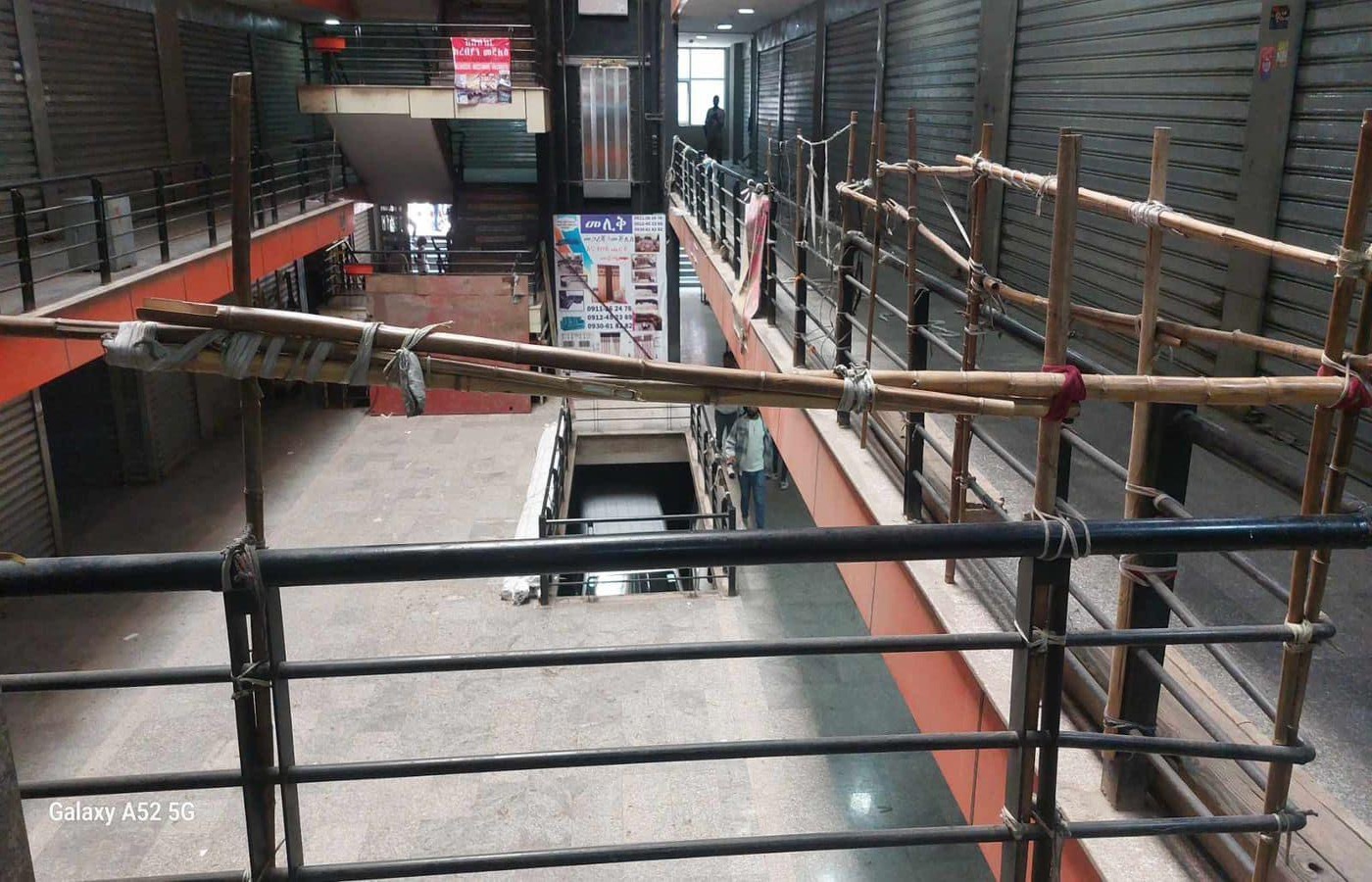- Flexibility sought as sector's loans, members multiply.
Savings and credit cooperatives (SACCOs) have become major players in Ethiopia's financial landscape, filling an important gap in access to credit left unmet by traditional banks. As consumer demand for loans has intensified in recent years, particularly to purchase vehicles and housing, SACCOs have experienced rapid growth by offering more flexible terms that larger banks cannot match. However, as Yared Seyoum reports, this expansion has also brought new challenges as these cooperative institutions exponentially grow in scale and influence within the financial system.
On May 16th, the usual afternoon bustle filled the small office of Amigos Savings and Credit Cooperatives (SACCO) in the neighborhood surrounding St. George Church. People waited patiently to speak with staff about loan applications and eligibility. As a local credit cooperative, Amigos SACCOs provided a crucial service for many who had no other options for accessing funds.
For those in the crowded waiting area, the foremost question was whether they would secure the financial assistance they needed - and if so, under what repayment terms. Now it was only a matter of waiting to discover their fate.
Yosef Taye, Senior Executive Sales at Amigos, explains the loan options available. "Loans range from 50,000 birr to 12 million birr. Borrowers can receive up to 25 percent of the loan amount as soon as they open a savings account. We strive to process loans within 30 to 60 days."
Amigos aims to approve qualifying applicants as quickly as possible. "As long as the minimum requirements are met, we try to disburse funds earlier," says Yosef. "Last year, our return on equity was a strong 54 percent."
Founded 11 years ago by three friends from Mekelle University, Amigos has experienced rapid growth. Starting with just 9,000 birr in capital and issuing their first 5,000 birr loan, Amigos now facilitates loans up to 12 million birr.
Assets have more than doubled in recent years to over 2 billion birr in outstanding loans. Ambitious five-year targets call for that figure to grow to 4 billion birr.
The cooperative finances critical purchases for its growing membership. "We've supported over 1,500 vehicle loans so far," Yosef notes. Amigos also backs business expansions and investments in sectors like manufacturing.
With over 7,000 members, 100 employees including 60 percent women, and consistent financial performance, Amigos SACCOs has clearly filled an important gap. Borrowers continue flocking to their sole branch, hoping the cooperative can make their dreams a reality through affordable, timely access to capital.
Savings and credit cooperatives (SACCOs) have increasingly become pillars of Ethiopia's financial landscape in recent years. As the government focuses on boosting access to formal banking for underserved groups and small businesses, SACCOs have filled an important gap.
In cities like Addis Ababa, demand for flexible financing is intensifying as residents seek to invest, expand operations, or manage cash flow. However, traditional banks often impose stringent collateral requirements or large transaction sizes that exclude many potential clients.
This unmet need has enabled dynamic SACCOs to thrive using cooperative models centered around community and mutual self-help. Their approach resonates with urban Ethiopians seeking affordable loans. Operating close to members allows SACCOs to appropriately assess risk.
Vehicle and housing loans now collectively account for over 90 percent of SACCO lending. As consumers and businesses pursue improved mobility and real estate, these sectors drive growth.
Vehicle loans are particularly popular as car ownership rises. SACCOs frequently provide first financing for purchases, with faster processing than banks and loan sizes matching budgets.
Similarly, housing loans meet rising demand, whether for lower-cost homes or commercial property. Down payments and documentation tend to be more flexible than traditional mortgages.
Awach SACCO has experienced remarkable growth over the last six years, emerging as one of Ethiopia's most impactful SACCOs. Its outstanding credit portfolio has skyrocketed to 13.4 billion birr, serving over 143,0000 member-owners across Addis Ababa.
Awach played a significant role in the boom of vehicle ownership, transforming the city's transportation landscape. Offering accessible financing for cars and taxis, Awach has fueled the expansion of ride-hailing services blossoming over the past five years.
Marketing officer of Awach Nato Mengistu notes the cooperative's vehicle loans now account for over 60 percent of its total lending. Such success made Awach a preferred choice of many. However, a recent policy revision triggered unexpected challenges.
Awach announced it would only provide loans for new vehicles, rather than used cars under 20 years old as previously allowed. The change surprised many of Awach's 143,000 members who had been saving to buy more affordable used cars.
Seifu Habtamariam, a longtime Awach customer, was one such member. "I had been saving for over a year to reach 210,000 birr for a used car loan," he says. "But now they say the minimum for a new car is double that. It's not fair to change the goalposts like this."
In the weeks following the announcement, Awach branches faced a crisis as frustrated savers crowded in to withdraw their deposits. The cooperative's 60 percent of loans tied to vehicle financing were now out of reach for these members.
"I cannot withdraw my money," added Seifu.
Marketing officer Nato Mengistu acknowledged vehicle loans comprised their largest segment. "The policy revision was intended to mitigate risk," he notes. "But it angered people who were blindsided after saving specifically for a used vehicle option."
While Awach's growth has transformed Addis' transport sector, this episode revealed the precarious position of cooperative banks. Without deposit insurance, members' savings are vulnerable if confidence is shaken by sudden changes prioritizing institutional goals over client needs. It raises questions about sustainable practices as SACCOs increase in scale and influence within Ethiopia's financial landscape.
Nato remains confident in Awach SACCO's strategy going forward.
"We recognize there was disruption to customer expectations with that revision," she acknowledges. "But our priority remains fulfilling the needs of members to the best of our abilities within a prudent risk framework."
Nato outlines the steps Awach is taking to regain customer trust while balancing institutional priorities. "We are actively communicating with those impacted to find suitable alternatives where possible, such as flexible repayment periods on new vehicle loans," she says.
Yosef, Senior Executive Sales at Amigos SACCO, remains optimistic about the cooperative's prospects despite current economic headwinds. As an institution that supports many in the community with access to credit, prudent risk practices are crucial to their sustainability and social impact.
"We have over 11 years of experience serving this community and take great care in evaluating every loan request," Yosef explains. "Maintaining portfolio quality is essential for our mission going forward."
He highlights Amigos' approach: "We always aim to avoid overexposure to risk. So far, our portfolio at risk is below two percent, which we're proud of given the challenges some face in repayment."
Before any funds are disbursed, Yosef says comprehensive assessments are conducted. "We analyze each member's debt-servicing capacity, considering their income sources, expenses and ability to collateralize the loan amount requested."
As the regulatory body for Ethiopia's cooperative sector, the Ethiopian Cooperative Agency ensures the financial health and good governance of institutions like SACCOs. Alemayehu Kebede, a senior expert at the Agency, believes risk is less pronounced than at traditional banks due to SACCOs' lending model.
"Since SACCOs require collateral for all loans equal to the amount borrowed, the worst possible outcome is selling that collateral to recoup funds in case of default," he explains. "So from a loan loss perspective, they are technically risk-free."
However, Alemayehu acknowledges non-financial risks still warrant oversight. When asked about SACCO’s policy backlash, he notes member interests must guide decisions.
"Major changes impacting clients should only follow democratic processes already set out," he stresses. "Policies must be discussed and approved by a general assembly majority to avoid unintended fallout down the line."
While financial risks may be lower, Alemayehu is conscious operational risks can still undermine public trust and financial inclusion goals if not mitigated through principles of transparency and member participation in governance.
Yosef is passionate about Amigos SACCO fulfilling its development mission, but feels constrained by some of the current regulations. As Senior Executive Sales, he has a clear view of both the cooperative's obligations and untapped opportunities. "The legal boundaries prevent us from serving more people in need across Addis Ababa," Yosef says.
He continues, "As it stands, we can only operate and open branches within Arada district even though members come from all over the city. This one-branch model stunts how many livelihoods we empower."
Yosef argues Amigos has grown beyond the scope envisioned under current law. "We facilitate loans as large as 12 million Birr - we're no longer a 'small' institution. Yet we lack oversight flexibility due to regulations crafted for startups."
He stresses the community-driven approach requires adaptation. "If subject to rigid rules, we can't adequately meet localized needs."
The demand for modernized rules also signals SACCOs' broadening role in the financial system. If guided well through this transition, experts agree cooperatives can sustain their inclusive impact. With continued support to realize flexible, community-focused models, SACCOs are well-placed to remain dominant job creators and poverty fighters across Ethiopia's changing economic landscape.





